The ANC government must acknowledge that xenophobic violence is a hate crime and a betrayal of the African allies that aided it during the darkest days of apartheid.
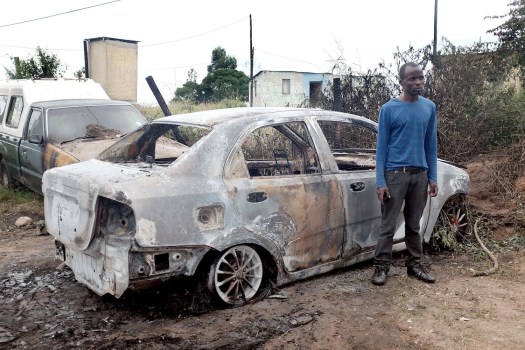
A Zimbabwean man stands by one of his two cars that was set on fire after he survived a petrol bomb attack at his home near Durban, South Africa on April 19, 2015. RAJESH JANTILAL/AFP/Getty Images
In the wake of the most recent wave of anti-immigrant violence, hundreds of foreign nationals want to leave South Africa, and some have already been evacuated back to their countries of origin, leaving an embarrassed South African president, Cyril Ramaphosa, to sheepishly send envoys around the continent to try to explain his citizens’ apparent hatred for their fellow Africans. The victims include citizens from many countries—mostly fellow Africans from Nigeria, Ghana, Zimbabwe, Zambia, and Mozambique.
In a futile attempt to evade political and moral responsibility, the South African government is engaging in fancy rhetorical footwork by characterizing attacks on foreign nationals in the country as mere criminality—but not xenophobia.
There are two reasons why the South African government is resorting to this dishonesty. First, a complete account of the xenophobic motives behind the attacks on foreigners would raise serious political and legal questions about the capacity and willingness of the South African government to meet its international obligations to affirm and protect the universal rights of all foreign nationals. Second, to concede that the motives for the attacks include xenophobia is to invite moral and political shame. This is particularly awkward for a government that benefited from historic support provided by many African countries to the ruling African National Congress (ANC) party and its leaders in exile during the darkest days of the fight against the apartheid regime.
South Africa’s Refugee Act has since 2000 allowed for large-scale movement of both refugees and asylum-seekers into the country with access to education and other basic rights. South Africa’s laws are widely regarded—in theory at least—as consistent with the Universal Declaration of Human Rights as well as the 1951 United Nations Refugee Convention. Now, this shining example of international solidarity is almost in tatters.
South Africans who are involved in the attacks on foreigners often openly exhibit xenophobic attitudes when they speak about foreign nationals living among them, especially in poor townships. In a recent march in downtown Johannesburg, for example, South Africans were chanting, “Foreigners must go, they must go back.” )
South Africans who are involved in the attacks on foreigners often openly exhibit xenophobic attitudes when they speak about foreign nationals living among them, especially in poor townships.
These South Africans offer reporters and researchers a range of reasons for why they are violently driving foreign nationals out of their communities. These include a perception that foreigners get preferential access to scarce job opportunities because of a belief that companies enjoy paying them less than South African workers, knowing that desperate migrants are more susceptible to exploitation; a belief that foreign nationals are somehow able to access other goods like state-provided housing, thereby making it harder for poor South Africans to get onto waiting lists; a belief that many services such as access to public health care cannot be provided to destitute South Africans because of the burden of also providing these to migrants from around the region; and, perhaps most importantly in recent weeks, an expression of the belief that foreign nationals are engaged in criminality such as drug-peddling and taking over derelict and abandoned buildings, which are occupied by criminals who then exploit these buildings economically by renting out rooms unlawfully to previously homeless individuals and families desperate for shelter.
All of these beliefs are questionable. Research has consistently shown that there is a net economic benefit that migrants bring to the country; South Africa does have severe unemployment problems, but they are the result of low economic growth and structural problems in the economy—not migration. Moreover, there is no robust data proving that foreigners get preferential access to state housing and health care; it is more likely that inefficiencies and government corruption are the causes of service delivery backlogs.
And while it is true that some foreign nationals are involved in peddling drugs, there is no proof that a significant percentage of foreign nationals are criminals or that most crimes are committed by foreign nationals. Many South African communities are ravaged by gangsterism—and these gangs mostly consist of South African citizens, making a mockery of the much-peddled stereotype that but for “criminal foreigners” South Africa would be a safer society.
Many South African communities are ravaged by gangsterism—and these gangs mostly consist of South African citizens, making a mockery of the much-peddled stereotype that but for “criminal foreigners” South Africa would be a safer society.
The government does not deny that citizens from around the region have been the targets of attacks in South Africa. However, it characterizes these attacks as sheer acts of criminality, rather than hate crimes and systemic violence against a specific racial or ethnic group.
This rests on a false distinction between criminality and xenophobia—and a blind spot in South African law when it comes to hate crimes. It is obvious that all hate crimes are also crimes, but not all crimes are motivated by hatred for the victims based on identity. Take, for example, the history of race-based criminality in the United States. The lynching of black men during the worst years of anti-black racist attacks in the previous century in parts of the United States cannot reasonably be described as mere criminality. These attacks were motivated by racist attitudes toward and beliefs about black men as subhuman, as pathologically criminal beings deserving of ill treatment. The racial identities of the victims were an intrinsic element of the motives for the lynchings.
In 1998, when James Byrd Jr. was brutally attacked and murdered in Texas by white supremacists just for being black, and Matthew Shepard was tortured and murdered in Wyoming just because he was gay, legislators in the United States bolstered the laws recognizing that violent crime inspired by racism and homophobia should be dealt with as particular categories of crime that must be severely punished.
Read More
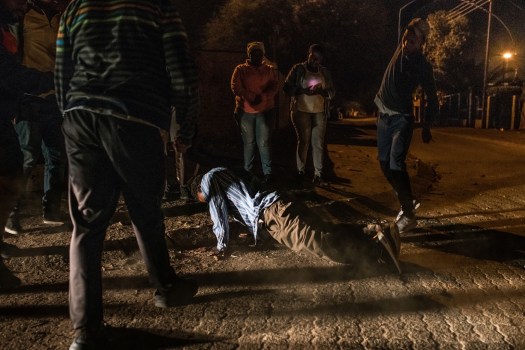
South Africans Are Taking the Law Into Their Own Hands
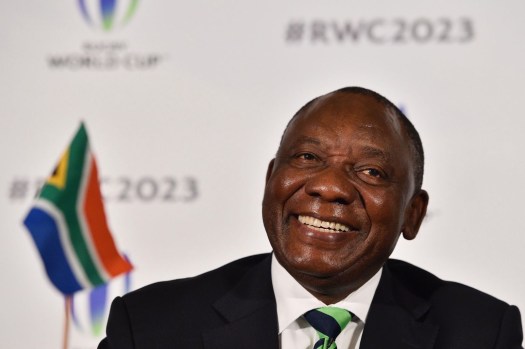
Cyril Ramaphosa in a press conference in London on September 25, 2017. (Glyn Kirk/AFP/Getty Images)
Cyril Ramaphosa Isn’t South Africa’s Savior

South African violence about more than xenophobia
In South Africa, the horrific phenomenon of so-called corrective rapes—the rape of lesbian women by men who believe they can turn queer women straight by raping them—is itself an example of a hate crime that the government has acknowledged. “Corrective rape” is not just the heinous crime of rape—it is also the deliberate and specific targeting of queer women by violently homophobic men. This is why, despite not having hate crimes on the statute books, the South African government has in recent times given serious consideration to introducing into the criminal justice system to punish perpetrators of this hate crime particularly harshly because of the pattern of violence uniquely targeted at lesbian women purely on account of their sexual identities.
A criminal’s motivations matter enormously in all legal systems. This is why the law responds differently to someone who accidentally causes a building to burn down because they forgot to switch off the stove versus someone who intentionally sets a building alight with malicious aims.
One must therefore ask why the South African government, which, given the country’s history, is exceptionally fluent in its understanding of violent racism—and reasonably progressive when it comes to fighting homophobia—does not extend insights from this analysis to also properly and fully describing what foreign nationals are experiencing? It is obviously criminal to kill a foreigner or to loot their shop. But it is not merely criminal. If a South African turns violently on foreign nationals in order to express his frustration about poor living conditions in South Africa, then he is being xenophobic as well as criminal. These crimes should be recognized as hate crimes, and South African politicians should say so plainly.
It is obviously criminal to kill a foreigner or to loot their shop. But it is not merely criminal. If a South African turns violently on foreign nationals in order to express his frustration about poor living conditions in South Africa, then he is being xenophobic as well
Until they do, foreigners will continue to be wrongly scapegoated by South Africans who are rightly aggrieved by an underperforming ANC-led government that is failing to get the economy growing, failing to provide basic services in all communities, and failing to keep communities safe. Sadly, too many South African citizens, across class and political divides, are engaged in such scapegoating of foreigners, viewing them as barbarians waiting to attack them if they do not attack these barbarians first. This is why—on social media platforms, talk radio, and elsewhere—one often hears South Africans who are usually divided along racial lines temporarily ignoring their differences in support of expressions of disapproval about foreign nationals while peddling the worst possible stereotypes. A clearer case of xenophobia cannot be invented.
The South African government knows all this, but it is motivated to be dishonest. South Africa prides itself as a nation that takes domestic jurisprudence, grounded in liberal constitutional principles and values, seriously. It is a signatory to all major sources of international law that oblige the state to affirm and uphold the human rights of every category of foreign national from refugees fleeing war-ravaged countries to economic migrants in search of work. The South African government is not always consistent in infusing its actions on the international stage with these values and principles, but that is the normative standard it aims at.
To admit to xenophobic violence inside its borders would be to admit that the South African government cannot be trusted to take seriously the political and legal instruments it signed up for in presenting itself as a state that’s serious about universal human rights. Sadly, to escape political blame for not complying with these sources of international law, the government prefers to peddle the weak propagandistic idea that deliberate attacks on foreign nationals can be wholly understood as random acts of criminality that do not stem from the scapegoating and hatred of foreigners.
To admit to xenophobic violence inside its borders would be to admit that the South African government cannot be trusted to take seriously the political and legal instruments it signed up for in presenting itself as a state that’s serious about universal human rights.
Yet another reason why the South African government is reluctant to be honest about xenophobia is that such an admission would amount to an indirect concession that the ANC-led government has fallen short when it comes to providing citizens with jobs and security. Truth is being sacrificed in order to keep up appearances. But it is only South Africans who fall for this and not the rest of the region.
After 1994, President Nelson Mandela’s new government set out to both thank countries in the region for their solidarity and to develop regional ties and cooperation through institutions such as the African Union to create political and economic connectivity between African nations. Now, South African-owned supermarkets are being set alight in Nigeria. It is a far cry from the pan-African solidarity that the ANC enjoyed during its fight for freedom against the murderous apartheid state.
The country is instead getting skewered across Africa for its xenophobic violence. Some countries have changed their minds recently about playing international soccer against South Africa, canceling matches at the last minute, while South African artists are feeling the heat when they try to perform in other African countries. Even Ramaphosa found himself being booed in neighboring Zimbabwe last weekend when he attended a service for late former president Robert Mugabe.
The government has had years to confront the problem. Back in 2008, the world woke up to images of deadly attacks against fellow Africans in South Africa. This included the infamous photo of a Mozambican national Ernesto Alfabeto Nhamuave, who was set on fire and then succumbed to the deadly flames. Those attacks were undeniably xenophobic, and yet no plan of action was successfully drawn up and executed to prevent the prospects of such attacks in future. And so, over a decade later, history is repeating itself. The South African state must now bear moral responsibility for being complicit in failing to change the conditions under which such hate-filled violence is possible.
The South African state must now bear moral responsibility for being complicit in failing to change the conditions under which such hate-filled violence is possible.
Even the chief justice of the Constitutional Court has casually asserted that “South Africans are not xenophobic … desperate people resort to desperate measures … there are no jobs, and life is expensive.” This desperate avoidance of the X-word is a feeble refusal to accept that there is a false dichotomy between being frustrated by poverty and expressing that frustration as violent hatred against foreigners. Indeed, one can empathize with poor people while nevertheless grasping that some acts of violence are inescapably xenophobic regardless the structural injustices that its perpetrators suffer daily. And if the country’s chief justice is prepared to let citizens off the moral hook, then politicians can rest assured they have a fighting chance in South African courts to argue that they are not failing in their international legal obligations to keep foreign nationals safe.
The xenophobic violence that keeps flaring up, tacitly aided and abetted by an ANC government that does not contain it or deal with its root causes, reveals how short the ANC’s memory is when it comes to pan-African history and the continent that gifted it much-needed shelter and support during the anti-apartheid struggle.
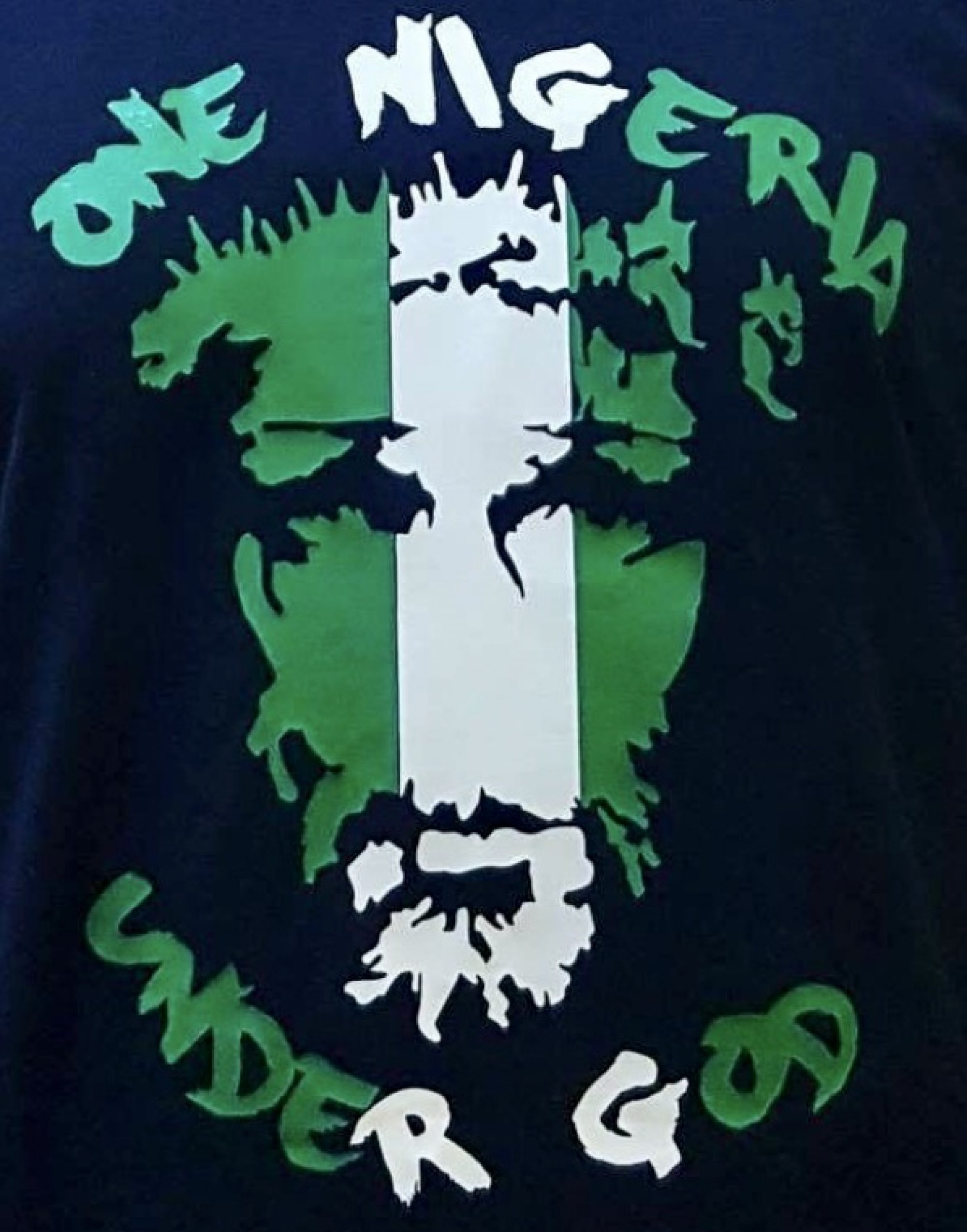
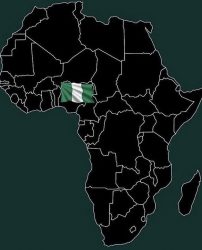

Yes sir, I agree with you
LikeLike